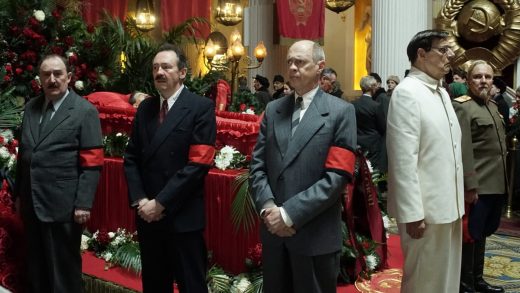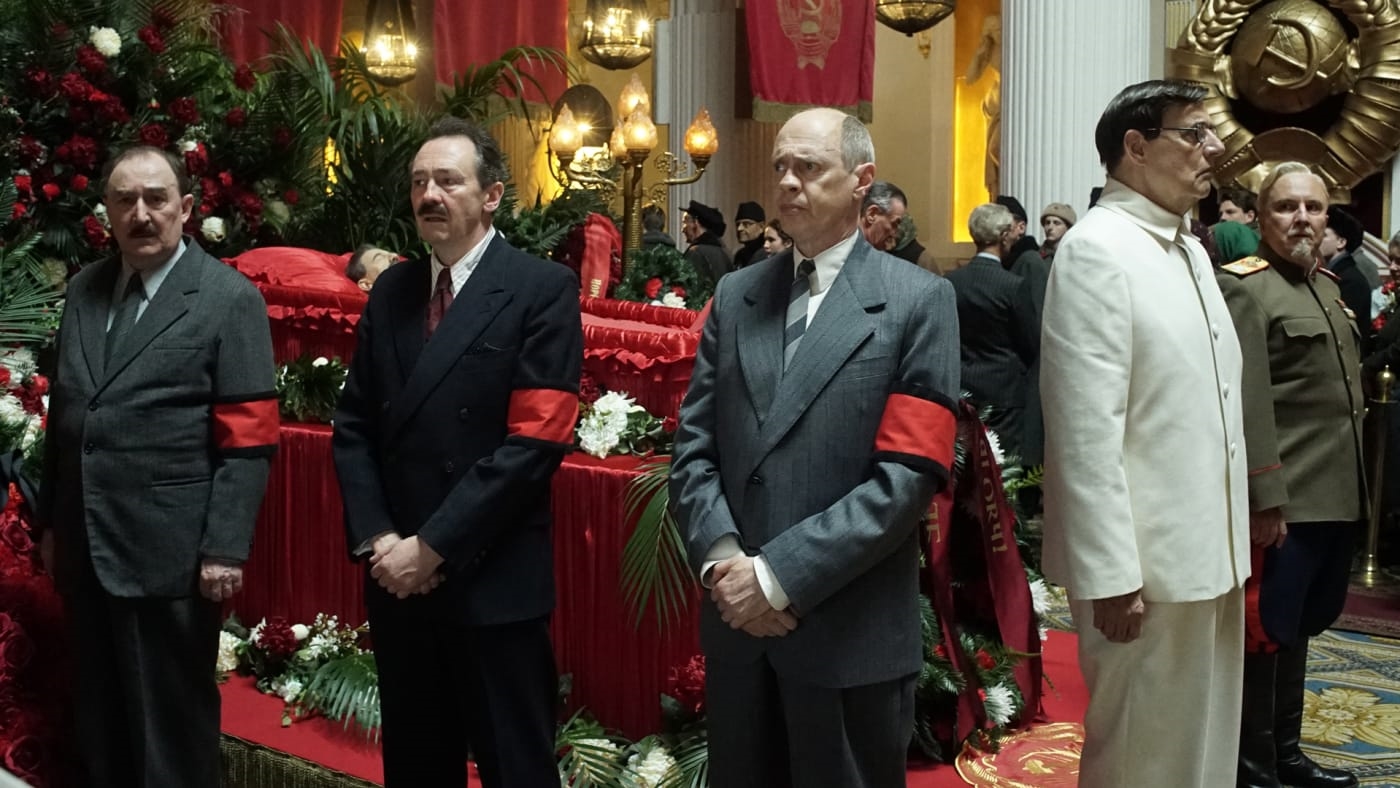Dark Comedy For Dark Times: “Death Of Stalin” & “Veep” Director On Why Humor Is Freedom
As the politics of today plunge way past the point of parody, Armando Iannucci has trained his incisive wit on the politics of (April 20, 2018). (1950s Soviet Union, specifically.) It’s a strategy borne of both fear and defiance at the prospect of history repeating itself.
The path to Iannucci’s new film, The Death of Stalin, began as the master satirist was exiting his HBO hit Veep in 2015. After four seasons on the stateside companion to his British dysfunctional government saga The Thick of It, Iannucci sought to trade Veep’s West Wing setting for the shadowy halls of a fictional dictator. He envisioned a rebuke to the rise of authoritarian rulers like Berlusconi, Putin, and Erdogan, which has occurred in tandem with the alarming spread of fascist groups like the National Front in the U.K.
“These people are speaking a language that I thought had disappeared,” Iannucci says.
At the same time, French producers Yann Zenou and Laurent Zeitoun, who had acquired the graphic novel Death of Stalin, approached Iannucci about adapting the piece as his next project. Author Fabien Nury’s vivid rendering of Stalin’s last days made Iannucci decide not to bother with a fictional dictatorship when the stories behind the real thing were so absurd but true.
The Death of Stalin, which is now in theaters, tracks the paranoia-fueled power struggle in the immediate aftermath of Josef Stalin’s fatal stroke in 1953. (Adrian McLoughlin plays the ailing ruler.) Master maneuverer Lavrenti Beria (Simon Russell Beale), the head of the Soviet secret police, butts heads with Nikita Kruschev (Steve Buscemi), the minister of agriculture, with deputy prime ministers Molotov (Michael Palin) and Malenkov (Jeffrey Tambor) jockeying for position as well. Iannucci paints the proceedings with details that reveal how terrifying an atmosphere Stalin had created, the dictator lying for hours in a puddle of urine behind closed doors because his own guards are too afraid to go in and check on him. The scheming in the new film plays like an amplified version of the palace intrigue portrayed in Veep, but the difference is that in The Death of Stalin, if someone makes a mistake, they get killed.
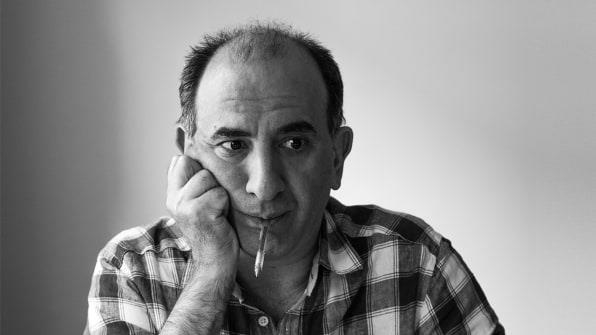
Iannucci spent two years on the script–along with cowriters Nury, David Schneider, and Ian Martin–researching Stalin and his inner circle, trying to get a full sense of what it was like living under that regime. He also took multiple trips to Moscow, to absorb both the setting and its people’s mind-set. One thing that Iannucci found striking in his research of 1950s Russia is that at the height of Stalin’s powers, citizens were circulating joke books making fun of him. They would have been shot if found in possession of such items, but they did it anyway. Probably because they needed a laugh more than ever.
“It’s almost like humor is one of the last things people surrender,” Iannucci says. “You’re still telling yourself you have a bit of freedom left because you’re making jokes about the person pointing a gun at you.”
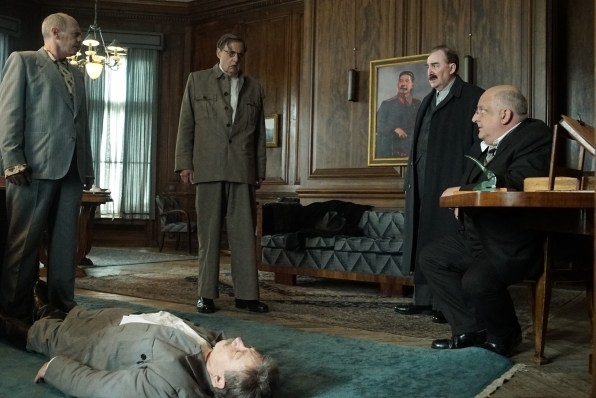
The Death of Stalin is Iannucci’s version of gallows humor, a chance to help viewers–and himself–make sense of an emerging dark time in history. It’s easily his blackest comedy yet, filled with moments of brutality designed to shake viewers out of the film’s slapstick reverie. Characters walk through the halls of gulags and allude to what’s happening inside them. People are dragged out of buildings and shot in a way that’s not even a little funny. It’s the kind of bold comedy one makes when carrying on as normal no longer feels like an option.
Although the movie was shot before the U.S. presidential election concluded in 2016, it took on new resonance afterward. As Donald Trump’s campaign surged, it further embodied the climate of creeping authoritarianism Iannucci was satirizing with his film.
“Trump’s campaign ads, especially the last weeks of the election, looked like the sort of ads you’d get in a dystopian sci-fi set in 20 years’ time,” the director says. “One ad talked about a conspiracy and money men, and that’s when I felt we are back in the 1930s and this is not good.”
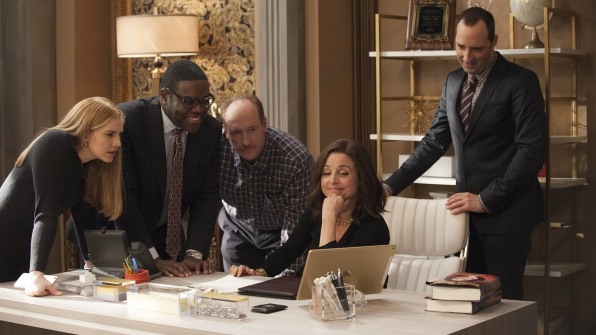
Donald Trump’s election win rendered the political comedy landscape of the time obsolete. It flattened the funny out of comedic exaggeration, making any ridiculous outcome seem scarily plausible. In the 2003 Chris Rock movie, Head of State, for instance, the straw man villain is a presidential candidate with the almost flamboyantly evil slogan “God Bless America–and No Place Else.” With today’s America First rhetoric, it’s hard to believe some U.S. audiences today would even realize that character is supposed to be the bad guy.
The comedy that once propelled shows like Veep and The Thick of It feels insufficient in the face of MAGA and Brexit, tethered as it is to pre-2016 ideas about the world.
“If we’d had a kind of Trump figure running on Veep, he would have gone away after three episodes,” Iannucci says. “That is the issue in that, it happened. It’s a reality. It’s not a fictional comedy idea anymore.”
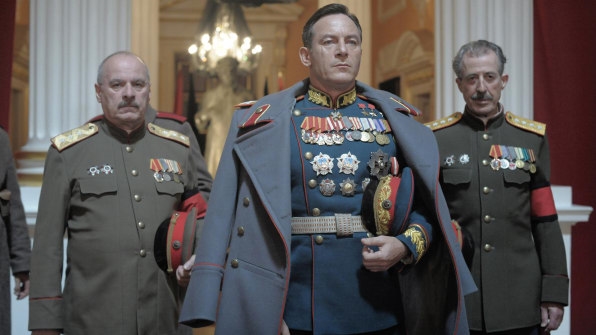
In Iannucci’s view, contemporary political comedy works best when performers like John Oliver and Samantha Bee act in an almost journalistic capacity, presenting facts in a way that plays up their inherent absurdity. Although The Death of Stalin is far from journalistic, it’s illuminating both when it adheres to reality and deviates from it.
Even the film’s lone touch of surrealism–the fact that the American and British actors in lead roles all use their natural accents–is intended to add a frightening blast of reality.
“I thought if they all started putting on Russian accents, it would feel detached from the audience, it would feel like it was happening in a foreign country far away,” Iannucci says. “I didn’t want people to feel that. I wanted people to feel this is happening in front of you now, and it’s your world.”
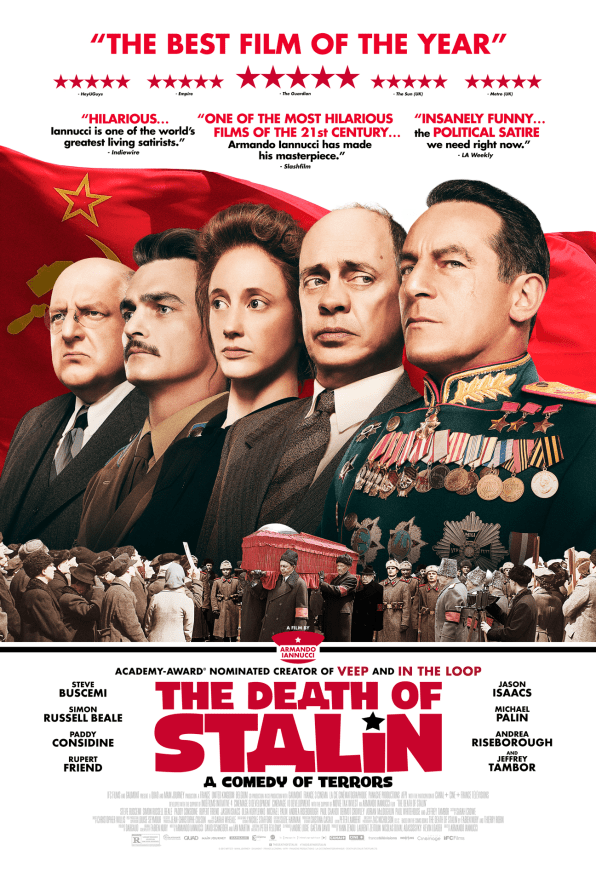
One crucial element that is not exactly true but has a basis in fact is the cause of Stalin’s stroke. (Consider this a spoiler alert for the first 15 minutes of The Death of Stalin.) In the film, the violinist Maria Yudina (Olga Kurylenko) slips a note to Stalin that reveals just how despicable she finds him. Considering the culture of fear that surrounds Stalin, it’s a suicidally brave act. Fortunately for Yudina, this rare dose of unfiltered criticism is what ushers along Stalin’s stroke, halting any chance of retaliation. The real-life Yudina did in fact once send Stalin a similar note, but it was far less direct than the one in the film, and it did not result in his death. It was important to Iannucci, however, to depict Stalin’s stroke in part as a fatal reaction to the critique of an artist.
“[Dictators are] so suspicious of musicians, poets, novelists, artists, and comedians because they love being in control,” he says. “The thing about a book or poem or a play or a painting is you cannot predict the effect it will have on the observer, and they hate that. They just don’t like anything where there is the potential for the unpredictable, which is why they remain so suspicious of anyone with creativity.”
As dictators and aspiring authoritarians continue thriving in 2018, Armando Iannucci is making movies like The Death of Stalin to celebrate the fact that he still can.
(8)

